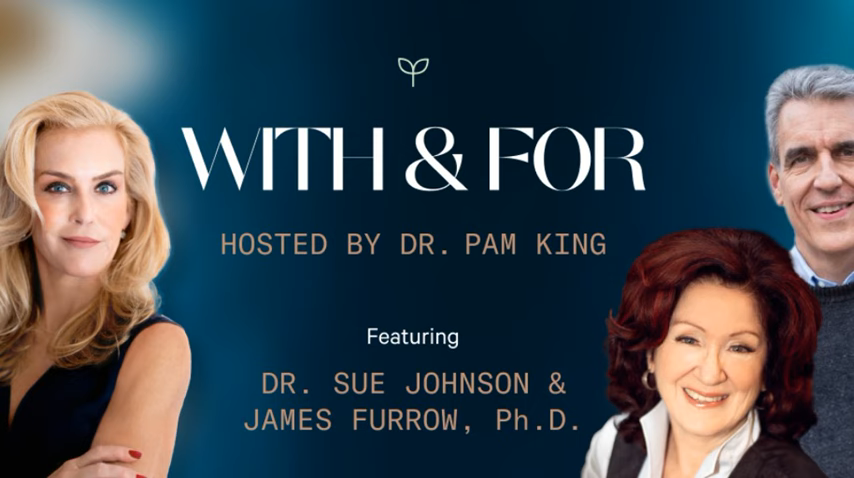Blog Articles
Will My Insurance Cover Therapy?
Individual & Relationship Counseling Associates
Why Verify Your Therapy Insurance Benefits?
A common question (view our FAQ’s here) we are asked at our therapy center in Reno is, “will my insurance cover therapy?” Understanding your insurance coverage for mental health services is an important step in making informed decisions about your care. This form will guide you through a conversation with your insurance company to help you understand your out-of-network benefits for therapy sessions.
Send us an email to receive a printable version of this form.
Before You Call:
- Gather your insurance card and any relevant policy information.
- Have a pen and paper ready to take notes.
- Be prepared to wait on hold or be transferred to different departments.
Call your insurance company at the Member/Customer Services line. They may ask for your patient ID number. Each insurance carrier organizes its phone menu options differently, but you should listen for the options of checking benefits and eligibility and checking mental or behavioral health benefits. If possible, choose to speak to a live representative. If this is not a menu option, you may be able to reach one by verbally asking for a representative or for customer service. You may be transferred before reaching the representative who can tell you your benefits. Note the date you call and the call reference number.
Client Name: _________________________
Date: _________________________
Insurance Company: _________________________
Member/Customer Service Phone Number: _________________________
Call Reference Number: _________________________
- Benefit Period: (The year your coverage is active) _________________________
- Out-of-Network, Outpatient Mental/Behavioral Health Benefits:
- Individual or Family Benefits (or both): _________________________
- Deductible:
- Individual: _________________________
- Family: _________________________
- Amount Met Towards Deductible:
- Individual: _________________________
- Family: _________________________
- Coinsurance Rate (Percentage patient pays): _________________________
- Out-of-Pocket Maximum:
- Individual: _________________________
- Family: _________________________
- Pre-Authorization Requirements: _________________________
- Claims Address: _________________________
Additional Notes: _________________________
Will My Insurance Cover Therapy? An Example:
Let’s say the representative gives you these benefits:
Benefit period: 5/1/25-4/30/26
Deductible: $1,000 Amount met towards deductible: $300
Coinsurance rate: Insurance responsibility: 60% Patient responsibility: 40%
Out-of-pocket maximum: $5,000
Explanation:
These benefits are applicable during your benefit period. This means that on 9/1/16, a new benefit year begins. The benefit year is important to know because it tells you when the accumulation towards the deductible starts over. Many insurance companies will tell you the effective dates of the policy before they tell you the benefit period. This can be confusing, because both of them are dates and may be given at the beginning of the call, but make sure you ask for the benefit period specifically. You can ignore the effective dates for this worksheet.
Deductible Amounts:
Often, a deductible must be met before reimbursement is possible. In this example, that means that the patient has to spend $1,000 out of pocket before reimbursement can begin. Insurance companies will reimburse a percentage of the usual and customary fee for a therapy session. They will not tell you the usual and customary rate, but it is determined by typical session costs in your region. Often, this rate is lower than the actual fee you paid for your session.
The percentage of the usual and customary fee that the insurance company covers is known as the coinsurance rate. Be sure to find out what percentage the insurance company will cover and what percentage you will cover after the deductible is met. In this case, the insurance company will cover 60% of the fee after the deductible is met. For this example, let’s say the usual and customary rate is $100. The insurance company will send back $60 for every session after the deductible is met. The patient will have had 60% of the usual and customary rate reimbursed.
Your Out-Of-Pocket Maximum
Your insurance company will put a limit on how much money you spend before they cover out-of-network mental health services at 100%. They will either limit the amount you pay out of pocket in general – the out-of-pocket maximum – or they will limit what you pay after the deductible as part of your coinsurance responsibility – the coinsurance maximum.
If you still need help with, “will my insurance cover therapy?” call us.
Individual & Relationship Counseling Associates
Relationship Counseling / Therapists in Reno, NV
Special thanks to my friend and colleague, Dr. Laurie Watson, creator of the Foreplay Radio Sex Therapy program.
Meet Hillary Harris, CPC-I
Meet Hillary Harris, Therapist in Reno
Hi, I’m Hillary Harris, a Clinical Professional Counselor Intern and therapist in Reno. For those looking to integrate faith into their therapy, I’m comfortable incorporating Christian principles to support your values and beliefs.
How I Can Help
I work with individuals and couples who are feeling stuck in cycles of loneliness, disconnection, or unresolved emotional pain. My general goal is twofold. First, to create a safe space where you feel understood and supported. Second, to gain greater clarity, self-acceptance and movement toward the things that matter most to you.
My Approach
Specialty Areas:
- Emotionally Focused Therapy (EFT): A proven approach to strengthening relationships and resolving conflict.
- Attachment-Based EFT for Individuals (EFIT): Focused on helping you heal and grow as an individual.
- Brainspotting: A powerful, focused treatment method designed to help process trauma and access deep emotional healing.
A strong connection between therapist and client is essential for therapy to work. Learn more about the importance of the therapy working alliance here. Together, we’ll explore the patterns that are keeping you stuck and find ways to create lasting change.
Who I Work With
I’m especially passionate about working with:
- Couples wanting to rebuild connection and trust. Read more about couples therapy here.
- First responders and military personnel navigating high-stress environments.
- Individuals coping with relationship loss or the effects of trauma. Read more about individual therapy here.
I have extensive, past experience as a military spouse with children. This experience has given me insight into the unique challenges faced by people in high-stakes, high-stress roles, and I bring that understanding into my work. Emotionally Focused Therapy is a well-researched model for helping military couples and families. I’ll be happy to talk with you about your specific circumstances and how I can help.
What to Expect
At Individual and Relationship Counseling Associates, we focus on providing compassionate, focused, personalized care. I’m part of a dedicated, collaborative team and regularly consult with our Clinical Director, Cornelius Sheehan, LCSW, to ensure I’m offering the best possible support for my clients.
Session Details
- Fee: $140 per session with a sliding scale.
- Insurance Accepted: Hometown Health Plan
- Ages Served: 18 and older
Hillary’s Areas of Expertise
- Relationship Issues
- Trauma and PTSD
- Veterans
- Addiction
- Anxiety
- Codependency
- Depression
- Divorce
- Family Conflict
- First Responders
- Grief
- Life Transitions
- Marital and Premarital Counseling
- Spirituality
- Stress
More About Hillary
I’m a mom of three teens and a sweet therapy dog, Ginger. When I’m not in the therapy room I’m usually enjoying one of the beautiful outdoor opportunities that are a part of living in Northern Nevada.
Get Started in Therapy with Hillary Harris
I’m here to help you navigate the challenges you’re facing and support your journey toward emotional health and stronger relationships. Let’s work together to help you move forward. Call now, or use our contact form for a free consultation.
A Discussion of Family Therapy for Military Families
What to Expect from the Episode
Dr. Polinsky explains the profound impact of caregiver accessibility on children, shedding light on how feelings of emotional disconnection can influence behaviors, life choices, and even risks like substance use. She and Con delve into the complexities of military family life, discussing challenges such as navigating parental roles during deployment and coping with the stressors unique to military culture.
Key Insights from Con Sheehan
Con shares real-life examples from his EFFT practice, emphasizing the importance of creating a secure family environment where every member’s emotional needs are acknowledged and met. He highlights actionable strategies such as:
- How availability and intentional parenting can counteract the effects of stress and disconnection.
- The role of repair in strengthening family bonds.
- The benefits of even short-term therapy in helping military families thrive.
Therapy for military families in Reno, NV with Con Sheehan, LCSW. Con does attachment-based EFFT, Emotionally Focused Family Therapy in Reno. He was recently a guest on the Communicate and Connect Podcast.
Ep. 50 with Con Sheehan on Emotionally Focused Family Therapy
In The Communicate and Connect Podcast for Military Relationships, marriage counselor Dr. Elizabeth Polinsky explains relationship science and discusses educational tips for improving your relationship and navigating military family life.
From Dr. Polinsky: “In this podcast you’ll find insights into how children cope with feelings of caregiver inaccessibility and how this can influence their behavior and life choices, including the risks of substance use. We also discuss specific challenges faced by military families, such as managing parental roles during deployment and the unique stresses that can impact both children and parents.
To aid our understanding, Con shares examples from his practice, focusing on creating a family environment where each member’s needs are understood and met. We’ll emphasize the importance of repair, availability, and intentional parenting—even discussing how therapy, even short-term, can be instrumental for families.”
Click here to learn more about family therapy in Reno with Cornelius and his colleagues at Individual & Relationship Counseling Associates.
Therapist Dr. Sue Johnson (1947-2024) revolutionized relationship counseling
Remembering Dr. Sue Johnson
If you’ve heard me describe the work I do or have been a student, you’ve heard me talk about therapist, Dr. Sue Johnson. I felt (continue to feel) an enormous loss with her passing, April 23rd. No individual was more important to the development of relationship therapy than her. Sue Johnson’s therapy innovations changed everything. Her work and writing were grounded in seeing people’s good intent and using emotional experience to bring it back online, no matter how deeply it was buried. Sue saw the good, AND at the same time did not tolerate bad-faith engagement. She was soft, slow and warm therapist, Dr. Sue Johnson in the video demonstrations of her work, but another Sue emerged when good-faith left the discussion. I loved these things about her!

I found my professional home with her.
My work was becoming centered in attachment theory when I met Sue in the clinical research and then in a book called, “The Practice of Emotionally Focused Therapy; Creating Connection,” in 2000. A few years later I met her very briefly in person at the Evolution of Psychotherapy conference in Anaheim, CA. I remember my sense of her being on this little island where emotion was prized, in a huge sea of cognitive-behavioral waters. Sue made so much sense! I was working frequently with court-mandated clients and “changing thinking” was NOT an effective mechanism for change, but it was the prescribed one. Focusing on emotional experience through an attachment lens proved to be the key to true change. Fortunately, years later, I found a formal path to learning EFT. My clinical work went to a place it never would have without Dr. Sue Johnson. A week doesn’t go by without me feeling deep gratitude for Sue and Emotionally Focused Therapy. Thanks to Sue, I could profoundly impact my clients’ lives in ways I never imagined when starting my career.
In this same professional home I met colleagues from around the world, some of whom are now amongst the most dear and important people in my life. They are family. I’m glad Sue knew how grateful we were for the connections she fostered – connections evident at EFT summits, trainings, and online.
Sue Johnson embodied what she taught.
I wasn’t a close, personal friend of Sue. But I did spend some time with her and did correspond with her periodically- and this always felt close and personal. You could feel her attentiveness and focus in a way that I can only describe as “honoring”. Sue engaged in this way, and I think this way of attending was a big part of what she helped therapist students find in their work. I’ll treasure my correspondence with her. Also, the opportunity I had to do a live case consultation with her. And of course, my role in continuing to grow a community of EFT therapists in the Reno/Tahoe area. Our local community is recognized by the International Center for Excellence in Emotionally Focused Therapy, the learning institute Sue and colleagues founded. You can disover more about learning EFT in Reno, here.
My heart goes out to the Sue’s family, the people closest to her and other colleagues experiencing her loss. Sue’s work will not only live on, but will continue to be expanded upon and proliferate. Here is a link to an article in the Ottawa Citizen where you can learn more about Sue and her work.
Cover photo of Dr. Sue Johnson (PHOTO BY BRUNO SCHLUMBERGER /Postmedia)
“The Science of Relationships: Healing, Emotion, & Connection with Drs. Sue Johnson & Jim Furrow”
“With & For“, a podcast hosted by Dr. Pam King.
This is a wonderfully warm and informative program where Sue and Jim discuss the core importance of relationship, and how to improve relationships. The following topics are covered:
• Living in a way this is, “fully alive.”
• How to bring together the spectrum of emotional realities with our lived experience
• Today’s loneliness epidemic; what to do about it
• The importance of empathy and caring in the healing process
• What is attachment science? And, the role of attachment figures in thriving relationships
• Improving relationships: therapeutic and relational practices that lead to security, a sense of worth, and competence in life.
How to improve relationships. From the show host: “Our society doesn’t want to hear about how interdependent we are—doesn’t want to hear that if we want to thrive, we have to put people first and we have to create community. And people need connection with others like they need oxygen. If you create a world where that connection isn’t very available or it all happens on a screen, you are going to have huge problems. You are going to have huge problems with depression, anxiety, suicide, emptiness—people are going to make terrible choices.” (Sue Johnson) We need each other. We are relational beings, and our thriving—or languishing—often hinges on relationships. In this episode, psychologists Sue Johnson and Jim Furrow not only explain why relationships are so important, they offer practical advice on how to pursue healing, emotional regulation, and lasting thriving in all kinds of relationships. Sue Johnson is the creator of Emotionally Focused Therapy, the gold standard in tested, proven interventions of couples and author of many books including Hold Me Tight: Seven Conversations for a Lifetime of Love. Jim Furrow is a marriage and family therapist and an internationally renowned trainer of Emotionally Focused Therapy. This conversation goes from profound to practical, covering the biological and psychological science to explain why belonging gives way to becoming. We discuss the rampant emptiness and loneliness, fear, and depression people today experience and the connection between relationships and a sense of meaning in life. Sue and Jim also provide a framework for how to understand your attachment style and the way it impacts your relational health. And they discuss the practical ways we can grow and change so that we can engage in and sustain fulfilling and life giving relationships.”
Our EFT relationship therapists in Reno will help you learn more about how to improve your relationships. Contact us for a free consultation.
“Side by Side: Navigating OCD Treatment with EFT Couple Counseling”
Last week I did a presentation on what I was very surprised to find is an under-recognized area of OCD treatment: the impact of attachment theory on relationships affected by OCD. Thrive Wellness co-sponsored an OCD Symposium in Reno that provided the opportunity to discuss OCD from a relational perspective. This article shares (in broad strokes) some key points from the presentation. In the “conclusions” section I focus on specific ways Emotionally Focused Therapy (EFT) can support couples facing the challenges posed by OCD in a connected, teamed-up way.
Understanding OCD within the Relationship Context
OCD’s influence on relationships extends beyond the individual symptoms of compulsions and obsessions. It can disrupt the normal flow of emotional connectivity and communication, leading to misunderstandings and emotional distance.
Assessment and Education
The therapeutic process begins with assessing the specific ways OCD affects the relationship and educating both partners about the disorder. This foundational step helps demystify OCD and sets the stage for collaborative problem-solving.
Identifying Patterns
Identifying negative interaction patterns is crucial to improving your relationship. For instance, compulsive behaviors might lead to frustration in one partner, resulting in a cycle of withdrawal and disconnection. Recognizing these dynamics allows couples to start addressing them.
Facilitating Emotional Engagement
Creating a Safe Space: A core aspect of EFT is creating a safe environment for both partners. This involves encouraging openness and vulnerability, especially for the partner with OCD, to share their fears and needs without fear of judgment.
Expressing Emotions: The therapist guides both partners in expressing their feelings related to the OCD symptoms, uncovering often-hidden emotions like isolation or resentment. This step is vital for understanding each other’s experiences.
Reframing the Problem: Viewing OCD as a shared challenge rather than a source of division is a powerful reframing technique. It encourages a united approach to managing the disorder’s impact on the relationship.
Enhancing Connection and Understanding
Through guided conversations, the therapy helps deepen the emotional connection. The partner with OCD explores and expresses their deeper fears, while the other partner learns to articulate their emotional experiences, leading to a strengthened bond.
Promoting Acceptance and Building New Patterns
Accepting the presence of OCD in relationship while working on effective management strategies is a delicate but necessary balance. The therapist works with the couple to develop new responses to OCD symptoms that foster connection rather than disconnection.
Consolidating Gains
Therapeutic progress is solidified by experiencing and discussing new ways of interacting outside of therapy sessions. This step is crucial for ensuring that the relationship continues to grow stronger, even in the face of OCD.
Collaborative Approach with Individual Therapy
A collaborative approach, involving coordination with the partner’s individual OCD treatment, ensures that therapy addresses both the couple’s relationship dynamics and the individual’s OCD management.
Conclusion
The OCD Symposium in Reno served as a valuable forum for discussing the integration of attachment theory into the treatment of OCD-affected relationships. Emotionally Focused Therapy offers a framework for couples to navigate OCD’s challenges, emphasizing the importance of a secure emotional bond and effective communication.
Here’s how EFT could be effective for couples where one or both partners have OCD:
- Improving Communication: EFT helps couples communicate more effectively, especially about sensitive issues like the impact of OCD on their relationship. It encourages partners to express their feelings and needs more openly and empathetically.
- Enhancing Emotional Support: By focusing on emotional attachment, EFT helps partners become more responsive to each other’s needs. For someone with OCD, having a supportive partner who understands their struggles can be crucial for managing symptoms.
- Reducing Relationship Stress: OCD can add significant stress to a relationship, which can exacerbate OCD symptoms. EFT aims to reduce relationship tensions by improving emotional connection, which can, in turn, create a more supportive environment for managing OCD.
- Building a Secure Attachment: A secure attachment can provide a solid foundation for individuals with OCD to face their fears and engage in exposure and response prevention (ERP) therapies more effectively. Knowing they have a supportive and understanding partner can make facing OCD challenges less daunting.
- Improving Coping Strategies: Couples can learn to identify and modify maladaptive coping strategies that may be reinforcing OCD symptoms. EFT encourages healthier ways of coping with emotional distress, which can indirectly help in managing OCD.
- Enhancing Treatment Compliance: Individuals with OCD who feel supported in their relationships may be more likely to adhere to individual OCD treatment plans, including medication and cognitive-behavioral therapy (CBT).
Closing thoughts about OCD and Relationship
It’s important to note that while EFT can improve the relationship dynamics that affect and are affected by OCD, it does not directly treat OCD symptoms. For direct treatment of OCD, evidence-based approaches such as CBT and ERP are recommended. Couples therapy, including EFT, can be a complementary approach to these treatments, especially for addressing the relational aspects of living with OCD.
The journey towards understanding and managing the relational impact of OCD is ongoing. As we continue to explore this intersection, the insights gained can guide more nuanced and effective approaches to support couples in strengthening their relationships in the face of OCD.
Feedback and dialogue on this topic of OCD in relationship are welcome. Please share your thoughts or experiences regarding the role of attachment theory in OCD treatment. For further discussion or inquiries, feel free to contact me at: con@erha-reno.com.
“Harmony in Holiday Traditions”: Crafting Our Unique Traditions
As the festive season approaches, couples often find themselves navigating the complexities of blending traditions, managing expectations, and seeking meaningful ways to celebrate together. As an experienced Emotionally Focused Therapist, I learn so much about what works through what clients have shared the profound impact that creating and nurturing unique holiday traditions for couples can have on relationships.
The Significance of Shared Rituals in Relationships
Building Emotional Bonds through Traditions
Shared rituals and traditions are more than just ceremonial acts; they are the threads that weave the tapestry of our relationships. In the framework of attachment theory, these rituals act as anchors, providing emotional safety and a sense of belonging. Whether it’s cooking a special meal together or taking a yearly holiday photo, these acts create a shared narrative, a story uniquely yours.
Blending Cultural and Personal Values
In my practice, I’ve observed couples who successfully blend elements from their individual backgrounds, forming traditions that are rich in cultural and personal significance. For instance, a couple I worked with combined their Mexican and Polish heritages to create a ‘Pierogi and Tamales’ night every Christmas Eve, a beautiful fusion that honors both their backgrounds.
Steps to Creating Your Unique Holiday Traditions
Initiate Open and Honest Communication
Start by having open discussions about what the holidays mean to each of you. What are your fondest memories? What traditions do you hold dear? This conversation is not just about planning; it’s about understanding each other’s emotional landscape.
Collaborative Planning: Crafting Holiday Traditions for Couples, Together
Once you have shared your individual holiday desires and expectations, it’s time to co-create. Remember, the goal is not to replicate traditions exactly as they were, but to blend them into something that is uniquely ‘us’. For example, if one partner enjoys outdoor activities while the other prefers cozy indoor settings, you could plan a day that includes a morning hike followed by an evening by the fireplace.
Embracing Inclusivity and Mutual Respect
It’s vital to approach this process with a spirit of inclusivity and respect. Acknowledge that some traditions might need to be adapted or even set aside to create space for new ones. This doesn’t mean losing your identity; it’s about creating a shared identity as a couple.
Examples of Unique Celebration Rituals
Culinary Adventures: More Than Just Food
Cooking together is a fantastic way to bond. It’s not just about the food; it’s about the act of creation and sharing. Try incorporating dishes from each other’s childhoods into your holiday meals, or create a new dish together that becomes your annual special.
Crafting Memories: Beyond the Photo Album
Consider activities that allow you to create tangible memories. Here’s an idea I loved and learned from a couple I worked with recently: write letters to each other every New Year’s Eve and read them the following year. This ritual has become a cherished part of their holiday experience, offering a moment of reflection and connection. Another couple described an annual get-together with friends where they played favorite games they had, themselves received as childhood holiday gifts. It gets, they say, “pretty silly and becomes incredibly bonding and memorable.” I loved this one.
Mindfulness and Reflection: Deepening Your Emotional Connection
Mindfulness practices can be a wonderful addition to your holiday traditions. Something as simple as lighting a candle every night of the holiday season and sharing what you’re grateful for can deepen your connection and bring a sense of peace and reflection to your home.
Navigating Challenges in Creating Traditions
Managing Differences and Compromises
It’s natural to encounter differences in preferences and traditions. The key is to approach these differences with curiosity and compassion. Compromise does not mean giving up what’s important to you; it’s about finding balance and mutual satisfaction.
Adapting to Life’s Changes
Traditions, like relationships, need to evolve. Be open to adjusting your rituals as your relationship and life circumstances change. What works one year may not the next, and that’s okay. It’s the flexibility and willingness to grow together that strengthens your bond.
Read Pieces from Relationship Strengthening Texts and Articles
You’ll find additional information throughout the Blog posts on and pages of this website. Also, I recommend the works of Dr. Sue Johnson and of Drs. John and Julie Gottman. These brilliant authors offer inspiring and fortifying insights. Holding onto just a couple of ideas to focus on as the New Year starts can be a wonderful ritual.
Sustaining and Growing Your Traditions
Keeping Traditions Alive and Evolving
Revisit and reflect on your traditions annually. What worked well? What might you want to change? This ongoing dialogue ensures that your traditions remain meaningful and aligned with your current lives.
Extending Traditions to the Community
Some holiday traditions for couples can be extended to friends and family, strengthening your sense of community. Hosting a special holiday gathering or organizing a group activity can create shared joy and memories beyond your couplehood.
Year-Round Practices for a Lasting Bond
Finally, consider how the essence of these traditions can be integrated into your daily lives. This might mean setting aside time for regular check-ins or creating small daily rituals that reinforce your connection.
Conclusion
Crafting holiday traditions for couples is a journey of discovery, creativity, and deepening love. It’s about building something that is uniquely yours, a celebration that reflects who you are as a couple and what you aspire to be. As you embark on this journey, remember that the process itself is as important as the traditions you create. It’s an opportunity to learn, grow, and connect in ways that are profound and lasting.
In this festive season and beyond, I encourage you to embrace the joy of creating and evolving your holiday traditions. May they bring you closer, fill your home with love, and create a tapestry of memories that you’ll cherish for years to come.
If you found this article helpful and would like to explore more about emotionally focused therapy or relationship strengthening, feel free to reach out for a consultation. Wishing you a season filled with joy, connection, and meaningful traditions.
“Cooling the Flames: De-escalating Arguments in Love”
Strategies for Handling Arguments in Relationship
Introduction
As an experienced, certified Emotionally Focused Therapist (EFT) couple therapist, I’ve spent years helping couples navigate the complex tides of their relationships. I’ve realized that one of the most common challenges couples face is handling relationship conflict, i.e. managing and de-escalating the arguments we all experience. In what follows, I want to share with you some insights and strategies from my clinical world that can help turn heated arguments into opportunities for deeper connection and understanding.
Understanding Conflict Through an EFT Lens
The EFT Perspective on Relationship Conflicts
In Emotionally Focused Therapy, we see conflicts not just as clashes of words or wills, but as expressions of deeper emotional needs and fears. Often, what starts as a minor disagreement can quickly escalate into a full-blown argument when underlying attachment needs are not met.
I recall a couple, let’s call them Gretchen and Walt, who came to me struggling with frequent, intense arguments in areas ranging from finance and parenting to which grandparents’ house they would visit first over the holidays. Through EFT, they learned that their conflicts weren’t really about the chores or the finances; they were about seeking emotional safety and connection. Gretchen and Walt each wanted to know they were taken in by one another.
Emotional Awareness and Regulation
The first step in de-escalating arguments is understanding and regulating your own emotions. It’s about recognizing the signs of emotional escalation within yourself. This awareness creates a pause, allowing you to choose a more constructive response.
For instance, when Gretchen felt unheard, she learned to express her feelings without blaming Walt, saying things like, “I feel worried and a bit afraid when we don’t talk about our finances.” This shift in communication made a huge difference.
Communicating Effectively in the Heat of the Moment
Communication Techniques for De-escalation
Effective communication during an argument is key. In EFT, we focus on expressing underlying emotions and needs without attacking the other person.
A technique colleagues and I often recommend is the ‘softened start-up’. Instead of beginning a conversation with criticism or contempt, start with a statement that opens the door for understanding. For example, “I feel stressed about our schedule and need to talk about it,” is more likely to elicit a positive response than, “You never make time for us.” Granted, this can be hard to do when you lack confidence (haven’t had the experience) that your partner will be receptive to your softened message. A well-trained EFT therapist will help you understand and overcome this block to softened messages.
Step-by-Step Guide to De-escalating an Argument
Here’s a simple guide to follow when you feel an argument escalating:
- Pause and Breathe: Take a moment to breathe and step back from the heat of the moment.
- Reflect on Your Feelings: Ask yourself what you’re really feeling and why.
- Communicate Your Emotional Needs: Share these feelings with your partner in a non-confrontational way.
Creating the Right Environment for Healthy Conflicts
Timing and Environment Considerations
The setting in which you address conflicts is crucial. Avoid starting difficult conversations when either of you is tired, stressed, or distracted. Choose a time and place where you both feel comfortable and are less likely to be interrupted.
Foundations for Resilient Relationships
Building Healthy Conflict Resolution Foundations
To build a relationship that withstands the storms of conflict, regular emotional check-ins are vital. These create a space for discussing feelings and needs outside of heated arguments. Understanding each other’s conflict styles and attachment needs is also crucial.
In my practice, I’ve seen couples transform their relationships by simply dedicating time each week to discuss their feelings and needs calmly and openly.
When to Seek Professional Help
When to Seek EFT Counseling
Recognizing when you need professional help is a sign of strength, not weakness. If arguments are becoming frequent and more intense, or if you find yourselves stuck in the same patterns, it might be time to seek EFT counseling. This can provide a safe space to explore deeper emotional issues and learn effective strategies for managing conflicts.
The Journey of Change
Sustaining Change with EFT Principles
Implementing these strategies is a journey, not a one-time event. It requires patience, practice, and a willingness to be vulnerable. Celebrate your progress, no matter how small, and be patient with setbacks.
Conclusion
In conclusion, remember that every argument presents an opportunity for growth and deeper connection. By applying these strategies, you can turn conflicts into catalysts for strengthening your bond.
Keep in mind that love is not just about agreeing on everything; it’s about navigating disagreements in a way that enriches your relationship. Handling arguments in relationship is a path to deeper connection.
If my colleagues and I can help you on the path of connection that grows and flourishes, reach out to us for a free consultation. 775-235-2205
Additional Resources and Support
For those interested in exploring more about Emotionally Focused Therapy and relationship enhancement, there are numerous resources available. Books such as “Hold Me Tight” by Dr. Sue Johnson, and websites like the International Centre for Excellence in Emotionally Focused Therapy (ICEEFT) offer valuable insights. Additionally, I’ll be hosting a series of workshops and webinars in the coming months, focusing on deepening emotional connections in relationships.
Attachment and Wellness
Attachment and Wellness are Inseparable
Feeling connected and important to others is essential for our overall well-being. Simply put, attachment and wellness are inseparable. Therapists use Attachment theory and Emotionally Focused Therapy (EFT), a primary application of this theory, to provide significant insights into developing healthy connections.
What is Attachment Theory?
Attachment theory, initially developed by John Bowlby and furthered by Mary Ainsworth, posits that the bonds formed in early childhood have profound effects on our emotional development and interpersonal relationships throughout life. This theory has evolved to encompass adult relationships, recognizing that the need for secure attachments extends well beyond childhood. In therapy, understanding how individuals cope with feelings of disconnection, with threat to security – is key to addressing various emotional and relational challenges.
The Role of Emotionally Focused Therapy in Enhancing Relationship Bonds
Emotionally Focused Therapy (EFT), an attachment-based model of treating couples families and individuals, is a short-term form of therapy that focuses on adult relationships and attachment/bonding. It helps individuals understand their emotional responses and patterns in relationships. EFT is a highly-effective, gold standard couples therapy. It encourages partners to express their emotions and needs more openly and empathetically, fostering stronger, more secure relational bonds.
The integration of attachment theory and EFT in therapeutic practices has proven instrumental in promoting mental wellness. By addressing the underlying attachment needs and emotional patterns, therapists can help individuals and couples develop healthier, more fulfilling relationships. This, in turn, contributes significantly to overall mental health and wellness.

In this podcast episode, Cornelius enjoys discussing the relationship of healthy interpersonal bonds to overall wellness, i.e. attachment and wellness, with Heather Haslem, the Senior Project Coordinator for Workforce Development at the Center for the Application of Substance Abuse Technologies (CASAT) at the University of Nevada, Reno. Heather trained at Duke University as an Integrative Health Coach. She is a National Board-Certified Health & Wellness Coach (NBC-HWC). Heather also brings expertise as a qualified Mindfulness-Based Stress Reduction (MBSR) teacher and yoga instructor.
#attachment #emotionalwellness
You
Building Resilient Bonds: How EFT Strengthens Community Connections
Building stronger communities is crucial, especially now as we face a widespread loneliness epidemic. The path to greater connectedness is clear. Based on attachment theory, EFT recognizes our inherent need for deep social bonds and strong emotional connections, fundamental to robust communities. By focusing on emotional dynamics, EFT helps forge secure, resilient relationships, aiding in resolving conflicts and emotional pain. It enhances emotional control and thinking adaptability, enabling calmer responses to new experiences. At its core, attachment theory and EFT teach us that embracing each other, rather than avoiding or opposing, is key to overcoming distress.
On the macro level, the promise of Emotionally Focused Therapy can be understood from several angles:
- Cultural Impact: Firstly, recognizing the importance of emotional intelligence and secure attachment can shift cultural narratives. This, in turn, impacts entertainment, education, and policy, pushing societies towards valuing emotional health and strong bonds.
- Model for Healthy Communication: Additionally, EFT provides tools for validating feelings, empathetic listening, and open communication. When applied widely, these can foster understanding and minimize conflicts, benefiting both personal relationships and larger contexts like communities and workplaces.
- Strengthening Relationships: At its core, EFT believes that strong attachments promote well-being in individuals and relationships. By mending attachment wounds and nurturing closer bonds, EFT subsequently bolsters family and community stability.
- Reducing Divorce and Separation Rates: Furthermore, EFT’s effectiveness in addressing relationship issues suggests its broader use could decrease divorce and separation rates, ensuring stable homes for children.
- Mental Health Improvement: On another note, EFT can diminish symptoms of anxiety, depression, and related disorders. Broadly speaking, this means a healthier public, fewer healthcare expenses, and heightened work efficiency.
- Education and Prevention: By integrating EFT principles in education or health campaigns, there’s an opportunity to proactively fortify relationships, mitigate relationship strain, and amplify societal grasp of emotional health.
- Economic Impacts: On the economic front, enhanced mental health, declining divorce rates, and improved work relationships spur economic gains. Content and emotionally stable individuals are often more industrious, potentially elevating economic performance.
- Research and Development: Lastly, EFT’s success and strong research base could fuel further studies in psychotherapy and relationship dynamics, ushering in advanced therapies and strategies for people and couples.









